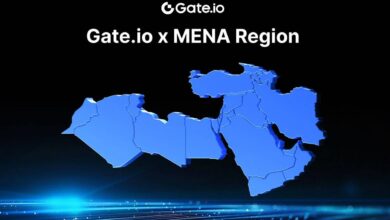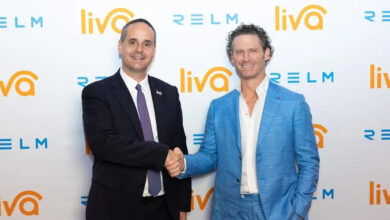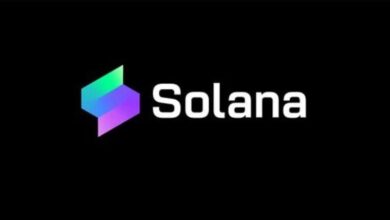The Blockchain the Myth Uncovered

The article below discusses Blockchain and its importance for today’s sharing economy By Lara AbdulMalak
When you first hear about the term Blockchain it is overwhelming. It actually started in 2008 with Bitcoin it only expanded into discussions about Blockchain itself in 2012. When Bitcoin failed to become mainstream innovation, others turned their eyes to the platform that the Bitcoin sat on…the Blockchain.
What is the Blockchain
Many have been asked to define the Blockchain sometimes they are asked to define it in 30 seconds or less. Whatever the definition the Blockchain is a new tool just like the internet was a tool just like applications are a tool. The Blockchain as a tool can be used for many things depending on what you want from it.
Before delving into how it can be used as a tool it is beneficial to look into what the Blockchain entails. The basic element that sets the Blockchain apart is its inherent trustworthy nature. For the first time in history you don’t need to trust another person, or an institution, or a closed database and you don’t even need to trust the other parties on the Blockchain all you have to do is trust the cryptographic computing nature of the Blockchain itself. This in itself is revolutionary because for as long as we can remember we have always had to trust middlemen or centralized third parties, be they governments, banks, credit card providers, etc because they guaranteed the trustworthiness of the parties we were transacting with or of the information we were searching for.
The second major defining nature of the Blockchain is its decentralized attribute. It is a distributed database or ledger that is alive with real-time data, and time stamped. As a distributed database it means that information can be stored on it across multiple nodes or computers in different locations and each holds a copy of this data. Only when each verifies the copy is correct is it accepted and a new chain is created. It is a historical ledger because every time a transaction happens or something new is entered into the Blockchain it doesn’t erase the history but adds to it in real-time. This is paramount because now users can actually track anything on a Blockchain, be it money transactions, assets, identities, records, supply chains, goods, etc..
Thirdly the Blockchain is inherently secure, because the data does not sit on one server but is distributed and encrypted across thousands of servers around the world making it very difficult to hack all the servers at the same time and tamper with the data or create fraud.
William Mougayar stated in his book “ The Business Blockchain” “ Tomorrow we will perform the equivalent of googling to verify records, identities, authenticity, rights, work done, titles, deeds contracts and other valuable asset related processes. We will not be able to double copy or forge official certificates once they are certified on the Blockchain and that was a missing piece in the information revolution.”
But then something else happened with the Blockchain and it evolved even further. Vitalik Buterin the Founder of Ethereum came up with a way to attach legality to the Blockchain using Smart Contracts. This forayed the Blockchain into a new era, a new tool not just a fluid decentralized time stamped database, not just a ledger for transactions of buying and selling, or transferring funds using a cryptocurrency but now it became the nexus for an automated smart sharing economy. With smart contracts you could now exchange goods and services automatically because the smart contract inherently had the legally binding terms and once terms are met the contract is executed, money or assets are exchanged, or used with no need for any interference. For example if I am in need of a translator to translate a document, I could write up a smart contract that stipulates that if someone can translate this document with high quality, and at this specific price then we will release payment. So a translator translates and if the outcome meets with the smart contract binding attributes the money is immediately released.
Another example would be a home owner wants to sell their home for a certain price. Once the price is met by another person the house on the Blockchain is immediately registered in the new owners name because it is a distributed ledger, the money is immediately put into the hands of the seller, the government taxes are immediately levied, all done automatically as the smart contract is executed and updates the entire Blockchain accordingly.
Last example, I have a car that I only use to go to work and then it sits idly in the parking lot. On the Blockchain I create a smart contract that allows people to rent the car for a cost of x$$ per hour, using a physical key linked to a digital asset on the Blockchain (a company called Slockit is doing this), as soon as the person who has rented the car arrives to the car puts their smart phone in front of the car or any other form of identification, the car unlocks and allows that person to drive it for the duration of the time rented. No uber, no taxi, just pure peer to peer transaction based economy. This can happen either between people, people and machines, or even in Smart Cities between things and other things. Dr. Raymond Khoury Executive VP Booz Allen Hamilton leading MENA Digital business defines Blockchain as “a secure verifiable distributed multi party transaction platform”
Blockchain Platforms
So while the Blockchain was created like the internet to be public allowing everyone to put in data, value, assets and allowing everyone to access it in accordance to what they needed or as per the privacy rules in place. It is noted that today with technological advancements in Blockchain; individuals can allow others to verify information without actually revealing the details of this information. Individuals can even monetize personal information so that if they share it with advertisers they get paid for sharing it.
Yet there are many who are not ready for that full openness provided by public blockchains and so other versions of Blockchain have been created to fit into the realms of today’s economy, and business. These more closed blockchains are called permission based blockchains that allow multiple parties to enter and view data, carry out transactions as long as they have been granted permission to do so. Today whether it is Ethereum, Hyperledger, Fabric Hyperledger, R3, Ripple, or other Blockchain platforms some form of permission based is being created.
So why Now and How will we use Blockchain
It is important to note that the blockchain has come at actually the right time. Governments, businesses, and individuals are accustomed to sharing information and using databases and even trusting the likes of Facebook, twitter, instagram, Airbnb so why not trust a mathematically hashed based proof of work network? Why not trust a platform where no one has absolute power, no one can lie about past or current events?
One of the earliest industries to start working with Blockchain was the financial because they were already seeing the effects of Bitcoin for payments, money transfer and cross border transactions. Companies such as Ripple, R3 who use Corda Blockchain and others entered the scene. It is estimated that 155 of banks globally will be using Blockchain in 2017. In the MENA region two banks have announced that they are using Blockchain FAB First Abu Dhabi Bank is using Ripple for cross country payments and ABC Bank in Bahrain has signed up with R3. In the future it is definite that more and more announcements will be made. Already Emirate Bank is implementing Blockchain solutions to improve efficiencies and decrease fraud.
The World Economic forum expects 10% of Global GDP to be stored on the Blockchain by 2027. Governments and businesses around the world are starting to dabble with Blockchain solutions. Narayan Iyer, Vice President, India and Middle East, Cognizant, said, “The blockchain ecosystem is still maturing, but given its potential to generate substantial benefits, firms in the MENA region are looking aggressively to develop business and technology strategies for a blockchain-enabled world. The most important aspect of blockchain is its ability to dramatically boost efficiency and reduce costs in a wide range of areas, including trade settlement, trade finance, KYC/identity management initiatives and collateral management, to name a few. What is also drawing the attention of financial services companies and banks in the region is blockchain’s impact on business strategy, more so around new markets and additional competition from nontraditional players. Several proofs of concept are being developed, which are expected to provide more clarity on potential changes to business models, stakeholder engagement, and culture of collaboration with external partners in blockchain consortia, which are crucial to reaping the rewards of blockchain.”
According to Saqr Ereiqat blockchain Evangelist and Senior Managing Consultant for Global Business Services at IBM Middle East and Pakistan stated, “the initial use cases for blockchain will be digital Identity on blockchain because digital identity is critical and it enables interaction between users in the digital world, while traditional identity systems are costly, disjointed and hindering innovation, the distributed trust model is a new way to manage these identities. So first let’s have all identities on Blockchain and then everything will follow.”
Waqas Mirza, Managing Director and Chief Marketing Officer of Avanza, “With Blockchain we realized that we could save so much on code writing if we used Blockchain because the platform has an inherent second eye. So taking into account our experience in financial sector we created a product called Cipher using Hyperledger and Ethereum depending on client needs and requirements. Today Avanza’s Cipher is the platform that will be used by Smart Dubai to implement a citywide payments platform across all existing 38 government entities and financial institutions.”
Blockchain in Government
Ironically governments who have been the biggest centralized database holders are now looking into how Blockchain can allow them to not only govern better, and create efficiencies but also to change their business models and how they provide services. Estonia for example is using Blockchain to put all land titles on the Blockchain ensuring that their deeds are secure from any meddling or corruption. Other countries are using Blockchain to register companies and eventually levy the taxes automatically from them, while others are using it to document everything and introduce better efficiencies and cost savings. If governments want to improve their service offering, stay relevant in today’s economy and ensure transparent seamless revenue generation Blockchain can be one of the solutions.
One of the biggest proponents of Blockchain has been the Dubai government. As Dr. Aisha Bin Bishr Director General of Smart Dubai stated, “By October 2017 we will have a fully fledged Blockchain platform offering Blockchain As a Service to our government and semi governmental entities. We have in cooperation with IBM and Consensys identified 17 vertical use cases, taking Blockchain out of the financial sector and moving it to more city wide services that include healthcare, education, real-estate, starting businesses, energy, mobility and others. These will be implemented in 2018.” Bin Bishir adds, “We aim to use Blockchain during EXPO 2020 to seamlessly open borders with other countries through Blockchain digital identity solutions at our airports.” She adds, “Today Blockchain, what we like to call the Internet of Transactions, is at the same stage that the internet was in its beginnings. While usually the ME cities wait until developed countries have decided which protocol to use or what standards will be set, we are working with both protocols, HyperLedger and Ethereum because we believe Dubai can shape the future of this technology within the realm of Smart Cities.”
It is amazing to imagine a day when you walk into an airport and there are no passport visa officers. Using eye retina scanning, the system knows who you are, and checks the Blockchain which has information on your identity, if you have a valid visa, where you are staying, if the money you have is enough and in a minute you are ushered into the country, this could even be done on the plane while you are in the air because the airlines will be using the same Blockchain as the airport or even in the airport you left from because governments might be using the same Blockchain platform.
The use cases for Blockchain are many with the most prominent today being Digital Identity, healthcare records, supply chain management, financial; IOT Smart enabled transactions, educational records and real-estate and so much more.
The Challenges
Yet with all the promise Blockchain is bringing and with all the talk about how it will transform the way data and transactions are recorded and processed or how it will transform businesses and how we govern and live. With all the predictions such as those of Gartner that say by 2022 a Blockchain based business will be worth $10 billion and the technology itself will established as the next revolution in transaction recording, there are always challenges or opportunities to improve.
First and foremost is the issue of ensuring that the initial data put into the Blockchain is credible. Standards need to be set in place, or regulations and legislations that ensure this. Secondly while the Blockchain is secure can it continue to be so as more and more solutions are built on it? Will cyber attacks ever penetrate it and if so what would the consequences be? Other issues are related to the technology itself, is it scalable how much more data can be added? Today they are building side chains and new types of smart contracts to deal with this issue but will those be enough? How much energy will the Blockchain use as it grows how many servers and hardware and power will we need to feed the Blockchain beast? Which platform will prevail or will there be interoperable platforms and if so how will they work together?
Other questions touch upon the soft-side of the equation, the talent pool needed how will we graduate more and more coders, data scientists, computer specialists etc needed to develop the Blockchain further? Today the number of Blockchain experts does not exceed a million while the number of Java developers for the internet is in the tens of millions.
Finally one of the biggest challenges will be tackling the disruptive nature of the Blockchain. Businesses that exist today might not exist in the same way they have before or they might not exist at all. As Dilip Rao, Managing Director Asia Pacific & MENA for Ripple states, “Countries see banks as systematically important so I don’t believe banks will cease to exist, but their role will change. Banking services will become commoditized and will be more in the backend. People don’t wake up in the morning and say hey I want to go do some banking, but they do want to buy, sell, and transact so the banking service will get absorbed into the transaction as long as it is done with integrity. Identity credit worthiness might be carried out by AIs, and AIs might even provide private investment advice.”
All these issues need to be worked out and others will arise but what is definite is that Blockchain is here to stay.
Conclusion
As a final remark we sometimes get carried away with thinking about just one new technology, we should not forget that today there are many other disruptive technologies coming out and we should look at them all in a synchronized manner. Blockchain, artificial intelligence, robotics, 3D printing and others on the way will have to work in cohesion with each other, and will actually strengthen each other if implemented in a strategically unified way.
Data will be key and the data analytics that can come from Blockchain will allow us to predict the needs of citizens, and businesses in order to better serve our economies.
Today there is a rush from governments, financial institutions, and business sectors to be the first to implement Blockchain and other technologies because not only will they be the first to learn from these implementations, or build talents because of them, but they will also be the hubs that other parties will join because they started while others sat around waiting.





